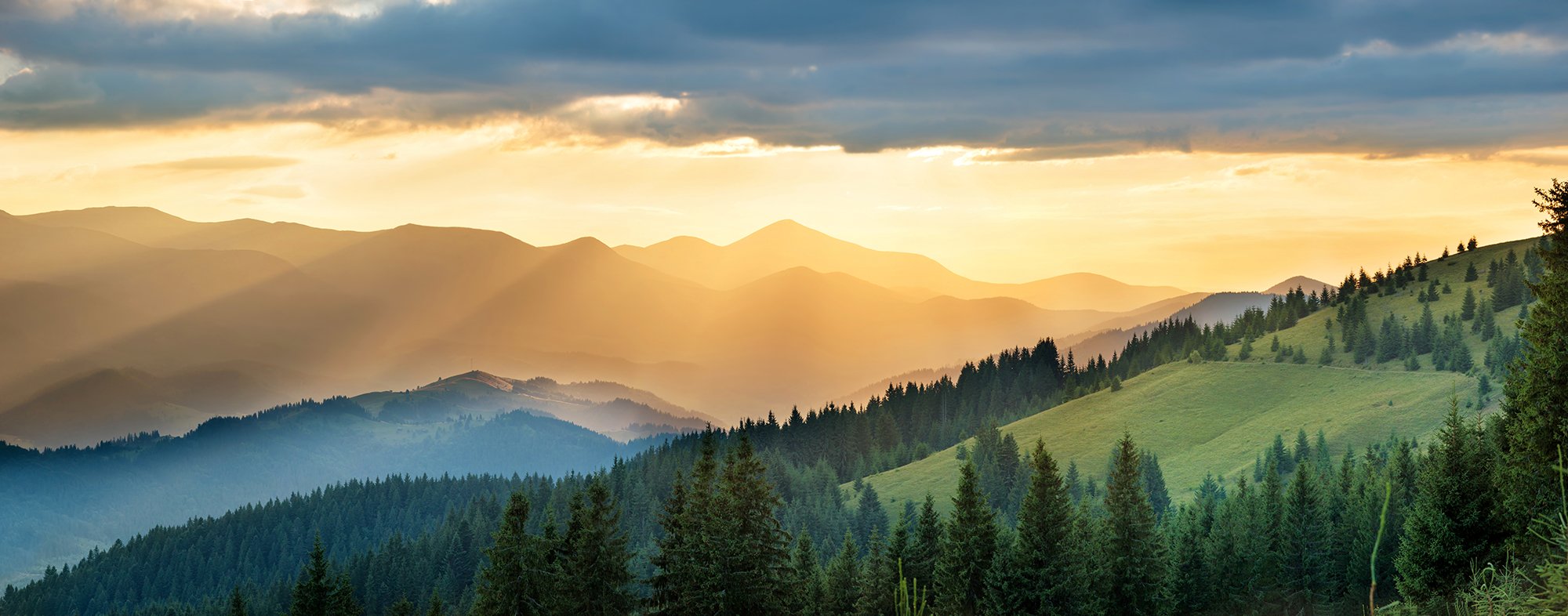
2015 - 2016
Notes from the Open Path
Four Prayers
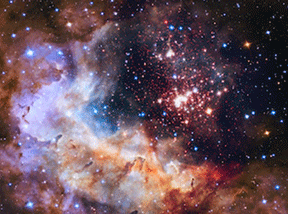
D E C E M B E R 2 0 1 6
This
Closer than words that form in my mind,
closer than tongue that says them,
closer than now where everything happens,
you, my beloved, are this.
I call you gracious but that is a word,
I call you God but that’s an idea,
I call you you but that is a fiction,
you, my beloved, are this.
You blast supernovas and spin every atom
and blink every eye in the world,
you lift every wing and kiss every lover,
you, my beloved, are this.
I turn to myself and ask what I am,
I ask what feels what I feel,
you don’t say a word but tell me with light,
you, my beloved, are this.
Miserere
Before the bomb the bullet,
before the bullet the sword,
before the sword the spear,
each one made to hurt the heart
you gave each baby born.
Beloved, we are not worthy of your gifts, we are not worthy.
How you made these eyes to see, we are not worthy.
How you made these ears to hear, we are not worthy.
How you made these hands to touch, we are not worthy.
The child cries for his father shot,
huddled there in the back of the truck.
I saw him in this morning’s news,
his little hand on his father’s back.
Beloved, you are the one we kill,
it is your heart we break.
You are the child who cries in the truck,
you are the dust that soaks his tears.
We want to hold you, we want to rock you,
we want to take you in our arms, but
we are not, we are not, we are not worthy.
Forgive us, beloved, guide us, let us try again.
Flag
At dawn each day I raise my heart
like a flag above my house.
Faded and thin it hangs there motionless
waiting while the first light comes.
You whisper. The flag trembles.
Your breeze arrives from nowhere.
Little waves, like old friends,
make the cloth laugh with them.
Beloved, you are so near
but I can’t see you,
just this happy flapping
in the morning light.
Sama
Out of beginningless time
the bird of your love arrives
and perches here in my heart.
On its way to endlessness
it has no need for hurry.
It sings and the whole world dances!
Waves bow to their partner the shore,
stars wink and flirt with the night,
the orchard ripens, leaves spin and clap,
even the bugs turn somersaults!
I won’t live forever and I don’t care.
Just to hear your song, beloved,
is all the joy I could ask for.
Link Arms and Sing
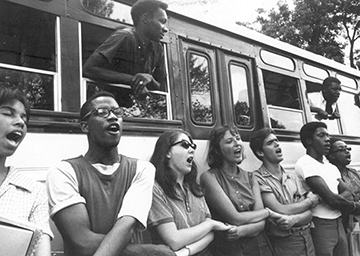
N O V E M B E R 2 0 1 6
It’s a hard time for us in America. We’re having a bad dream that we can’t wake up from: Donald Trump and all he stands for is about to take power. We’re scared, disheartened, and angry. We imagine the worst and we may be right. If Trump carries through with what he says he wants to do, and Congress lets him, we can say goodbye to global climate accords, coral reefs, polar bears, the Iran nuclear treaty, eleven million inhabitants of the country, gun control, healthcare, civil rights, and civility itself.
My daughter Aura wrote to me that she wished her children were younger so they wouldn’t understand, but they’ve heard their parents talking and they know something unhealthy is happening. I remember having that feeling of dread when I was my grandchildren’s age, coming home from elementary school and finding my mother shouting at the little TV set where McCarthy’s Un-American Activities Committee was persecuting people who were just like my father and mother. “Are you now or have you ever been a communist?” That man said it over and over. His voice scared me. But I was proud of my parents because they cared so much that people treat each other in a good way.
This has been going on for a long time — the old distrust and fears of our species pouring into the hearts of our children. What dread did the children feel who were born just ten years before me in the war-torn countries of World War II, when they heard their parents whispering about the events swirling around them? It’s the legacy of fear bequeathed to the generations.
So what we can do? What can we do for the children?
There was a phrase we used years ago in nonviolent direct action trainings when things got tense: link arms and sing. Linking arms makes it difficult for those trying to fragment us to do so — in our unity is our strength. And this means more than just physically linking arms. It means recognizing our oneness with each other and even with those trying to overwhelm us and what we stand for. When we act from the spirit of oneness, our actions are always compassionate.
That’s what “singing” means. Not only singing songs, though music always helps, but making sure our voices and our actions express what matters most to us. Sing out our love, sing out what matters to us, sing into the hearts of the oppressors. Jesus did that. Dr. King did that. The woman who put the flower in the barrel of the National Guardsman’s gun did that. The man who stood in front of the tank in Tiananmen Square did that.
The bravery of these people was rooted in their love. But while their actions and words were compassionate and non-violent, there was also a fierceness to them. They took a stand. “Get up, stand up, stand up for your rights,” is how the song went. My mother shouted at the TV! As a child I felt the power of that, and it, too, made me proud.
When our children witness the strong gentleness of our coming together in oneness, and when they hear our passionate songs, their dread will diminish. They’ll hold our hands and sing too.
Pilgrimage to Standing Rock (4)
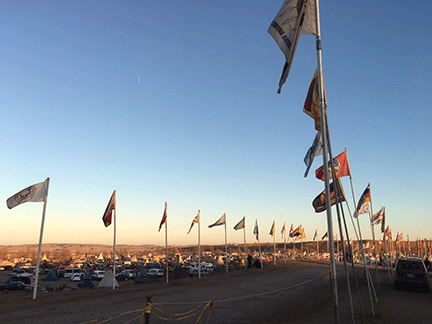
N O V E M B E R 2 0 1 6
There is a wildness here — it comes with the wind flying through the tall grass and people’s hair, it comes pulling on tent lines and flapping the flags of the Indian nations on the hill as if victory was near, it comes with living under the sky all day, it comes with the chaotic bravery of all these different people who have dropped what they were doing to make a stand here before the forces that seem to tame everything.
It is a beautiful, messy wildness, and though it says it is here to protect with prayer the sacred land and water, it doesn’t stay neat or uniform but flies through all of us like a longing we can’t control, a longing for something we feel is being lost.
Yesterday a large crowd headed to the river where a line of police in riot gear stood silhouetted on top of the hill across the river. Young men paddled canoes across, others swam the frigid waters and then attempted to scale the hill while the police lobbed pepper spray down at them. After a few hours everyone gave up and went back to camp.
What did it mean? Nothing much, except that it was the wildness trying to find its way beyond itself, a burst of longing to make it to the other side, to get through the sadness many of these good people have felt since they were children.
Later the elders announced that this kind of action was not sanctioned, that it was counterproductive, and that everyone must try to keep all actions peaceful and prayerful.
So early this morning a circle of some 1500 people gathered in silence at the behest of the Indigenous Youth Council. Prayers were chanted, the sacred pipe was lit, and a jar of water was sanctified. Then all of us walked in silent prayer in a long procession out of camp and along the road to where the police have their roadblock across a bridge. As we walked I could feel the great wildness in us become strong. It wasn’t tamed by our silence; it was made steady and even noble.
The procession stopped in the middle of the bridge and we all sat down on the pavement, everyone quiet, everyone in their prayer. A small group of Indian youth walked across the bridge and spoke with the line of policemen there. After about twenty minutes they returned and announced to us through a loud speaker that they had invited the police to pray with us, but that they had refused. The young people then asked the police if they would like to drink from the sacred water they carried. Again the police refused, except for one, who took the water and sprinkled it on his uniform.
When we heard this, a cry of yi-yi-yi-yi-yi rose up from the women in the crowd, a cry of thankfulness and honor to that man. Tears ran down my cheeks and it was the same for many around me. Then we all stood and silently followed the young people carrying the sacred pipe and water back to camp. The wildness in us, for a moment, flew up in pure, silent joy.
• • • •
This is probably the final installment of these Notes from our pilgrimage to Standing Rock. We expect to leave the day after tomorrow — it’s been both an inspiring journey and an ordeal for our old bodies. I want to thank all of you who have written notes of encouragement and gratitude to us — your words give us strength! May we all learn to keep it sacred, keep it prayerful, keep it joyful!
Pilgrimage to Standing Rock (3)
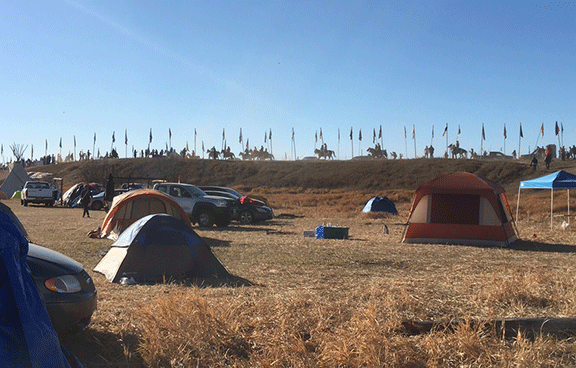
N O V E M B E R 2 0 1 6
Yesterday Rabia and I took the provisions we brought — sacks of rice, potatoes, carrots, nuts, and dried fruit — to the Lakota camp near us. They cook for 600 people every day. We said we wanted to give them this food in the name of our late Lakota friend Kiefer Foote (Spotted Eagle). Many years ago Keifer traveled with us to Southeast Asia to share with indigenous leaders of Thailand what Native Americans have learned about cultural survival.
Later in the afternoon I went back to the Lakota camp and scrubbed nine enormous cooking pots stuck with grease and burned food. Squatting there in the dust scrubbing those pots, my hands blackened, I felt I had found my rightful place in this historic camp. I won’t be arrested, I won’t make strategy with the elders, I won’t join the inner prayer circles. But when a native woman walked past me as I was working — when she smiled down at me and said, “Thank you!” — I knew I was where I was supposed to be.
The camp here at Standing Rock has expanded dramatically since we arrived. People keep coming; our van used to have no one camped near it, but now we are surrounded by tents and trucks. This morning as I walked through camp I saw a large group gathered, so I went to see what was happening. It was an orientation meeting for new arrivals (we had missed that because of the interfaith gathering we were part of). The young white women who led the meeting were impressive — articulate, sensitive, and strong. They stressed three guidelines for everyone:
1. Be of use. Everywhere there are things to do: wood to chop, donations to sort, winter housing to be built, food to be prepared.
2. Keep the indigenous center. We are guests here. Be aware that we of the white culture lead with our heads; we come in with our ideas, we want to fix everything. When you find yourselves doing that, Step back, pause, and listen. Observe what’s happening. They went on to describe many ways to respect indigenous customs, leadership, and ceremonies.
3. We are creating a new lineage. We are creating a new lineage. This is how they expressed the feeling that we all have here, that the seeds of a new world are being planted — not just here, but in places and hearts around the planet.
At noon today a large band of “horse people” galloped in, including Chief Arvol Looking Horse in a fine feather headdress. He was followed by about thirty young Hopi men who had run and walked all the way from New Mexico. A huge crowd of us — maybe 1500 or more — gathered around them to listen to what they had to say and to the chants and drumming of a circle of men and women. The air split with the piercing sounds of eagle bone whistles and the ululating cries of the women.
The words and prayers spoken here touched every heart. Here are a few of them:
“Remember that this is a prayerful and peaceful gathering. Remember that you do not have to be angry to be brave. In our history we sometimes fought each other, but now all the nations are coming together. We are not protesters; we are protectors. We come together to protect our land and our ways, and to protect our sacred water for all our children and grandchildren.
“And you who are not indigenous, we love each and every one of you. You have left behind your families, your communities, your obligations, to support us. You are welcome here. You are our relatives. You will not forget what you see and experience here, and you will take that back to your people. Our encampment here is not just about Standing Rock. There are many Standing Rocks. In your communities and regions there are many pipelines. We must learn a new way to live on Grandmother Earth. We come in prayer and respect to learn that new way, together.”
Pilgrimage to Standing Rock (2)
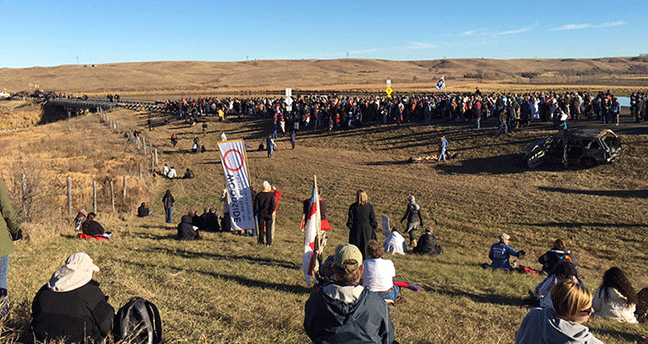
N O V E M B E R 2 0 1 6
We've been encamped at Standing Rock for three nights now. The wash water was frozen solid this morning, but the sun is high now and our bodies are warm at last.
Brown autumn grasses cover the soft hills here where the little Cannon Ball River wanders down to the Missouri River: the sacred water. That’s the heart mantra of the encampment: Water is Sacred. Water is Life.
A vast smoky camp is spread out around us — tents, teepees, cooking fires, flags from all the Indian nations: Dakota, Lakota, Cheyenne, Navajo, Nez Pierce, Kiowa, Cree — hundreds of beautiful names of the proud people beaten down but not beaten by the new way of life that has come to this land. Their endurance too is sacred.
The call for religious leaders to come support them — they expected perhaps a hundred might come — resulted in over five hundred Christian, Jewish, Muslim, Buddhist, Hindu, and leaders from many other traditions arriving yesterday for the action scheduled for today. We came from all over the country. Last night we met in a gymnasium in the nearby Sioux town of Cannon Ball, prayed and sang and listened to each other testify.
This morning we gathered early around the central council fire. A copy of the Doctrine of Discovery was burned — the early church doctrine used to justify the taking of the continent. Then our colorful procession, joined by hundreds of others from the camp, proceeded up the road to the police barricade. Helicopters and drones circled above us. It had been agreed by all not to cross the police lines, but to simply bear witness there to the cry to stop the Dakota Access Pipeline from crossing the river and endangering the water that is life. Again we sang and prayed and listened to testimony. It was a beautiful moment where once again truth was spoken to power.
Kaio, a pastor from Samoa I befriended last night, took the mic and gave one of the most powerful statements. He ended with the words: “Stand for the sacred. Keep the sacred.”
His words revealed to me a simple secret about sacredness: our keeping of it. When the water, the land, the air, or the generations to come are no longer sacred to us, we will have lost what matters most, and we will have lost our own sacredness.
Pilgrimage to Standing Rock (1)

N O V E M B E R 2 0 1 6
A pilgrimage is often thought of as a journey to a sacred destination, to a Mecca or a Jerusalem, an Arunachala or a Lhasa. The journey my wife, Rabia, and I have just begun feels like a pilgrimage to us, though there is no holy edifice or memorial at the end of it. Instead there is a frontline of conflict: Standing Rock, where a few thousand Native Americans from tribes around the country, along with folks sympathetic to their cause, are standing in the way of the construction of an oil pipeline cutting through their ancestral lands and endangering the water source of the Standing Rock Sioux and potentially millions of people down the Missouri River.
We had been considering going to Standing Rock for the past month, but there were dozens of reasons not to — commitments, work, distance, health, our age, the cold winds that sweep across North Dakota, and we were not sure we would be welcome. After all, white people like us had stolen the land and betrayed every treaty made with the native people of this continent.
But then we heard Chief Arvol Looking Horse, 19th Generation Keeper of the Sacred White Buffalo Calf Pipe Bundle, call for religious leaders from all traditions to come join the people standing in prayerful protest against the pipeline. “If you can find it in your heart,” he said, “come support them, stand side-by-side with them because they are standing in prayer.”
So we canceled our appointments, packed our van with camping supplies and food to give away, and headed north this morning at dawn. We expect to arrive at Standing Rock late tomorrow, November 1.
Instead of my usual “Notes from the Open Path” for this month, I hope to send you several short updates as our pilgrimage continues (assuming I can send text out to be formatted like this.)
I’m not sure what we’ll find at Standing Rock, and whether my feeling that this is a pilgrimage toward something sacred is any more than a spiritual projection. I hope you’ll accompany me in the days ahead and see what can be discovered about the sacred, and conflict, and the meaning of this confrontation between men with uniforms, guns, and humvees and people saying, “Stop. Enough.”
Move Your Feet
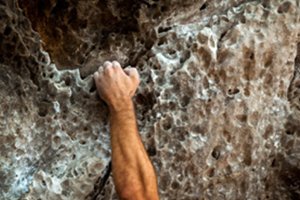
S E P T E M B E R 2 0 1 6
Sometimes our usual understanding of things can get us stuck. We might hold a belief or desire about how things should be, but others disagree and block what we long for. We might feel at a dead-end in our work or marriage, or we might be caring for an aging, grumpy parent and feel trapped in the role, or perhaps be suffering from an illness or physical condition that limits us and makes us feel that life has lost its promise. In circumstances like these, the logic of our complaints can feel utterly convincing. The more we obsess about the constraining situation we are in, the more our beliefs about it seem to be proved.
Once when I was learning how to rock climb in Thailand I found myself stuck about a hundred feet above the ground, clutching onto a vertical rock face. I couldn’t move. There were no other handholds I could reach, and my fingers and arms were burning with the pain of trying to hang on. I was desperate, frightened of falling; even though I knew the rope clipped to my belt would catch my fall, I also knew if I lost my grip I’d plunge a dozen feet or so before that same rope would slam me back against the sharp karst rock of the cliff.
My heart was pounding, my face pressed against the karst. Michel, my French friend and instructor, saw my desperation and shouted up at me, “Move your feet!” Where? I couldn’t see or feel any place to move them. He shouted again, “Move your feet!” I felt around with my right foot for a new foothold, but quickly drew back. Impossible!
But then I found that I could shift my right foot just a few inches along the ledge I was on. It wasn’t much, but it was enough to allow my left foot to move slightly, which gave me room to shift my whole body a few inches. Now I could extend my right arm further, and I caught a new hold. From this position I could swing my foot up far enough to catch a small crevice where the toe of my shoe could grip. And so I climbed out of there.
Since then, “Move your feet!” has become a joking reminder in my family when things feel stuck. It points to how a little shift can change one’s whole perspective. “Move your feet” when you don’t think you can, when you don’t think there’s any way out of your conclusions about yourself, your life, or the state of the world. “Move your feet” when you judge or blame others. “Move you feet” when you’re afraid or lonely.
The hard part is letting go of your belief that your view is absolutely true. That’s the castle of the ego and its walls are dense and protective. To walk out of the castle is scary, since you don’t know what may happen. It takes trust — but in what can we trust? On the cliff I had Michel’s voice to guide and reassure me, but when you’re holding on to the storyline of a grudge, or anxiety, or depression, or loneliness, how can you let that go?
I would say, when all else fails, pretend. If you don’t feel you have enough trust to step into the unknown, pretend you do. You will find that a more heartfelt trust soon comes to you. For example, if you’re lonely or depressed, you might take the step of doing something for someone else (as I’ve said elsewhere — When you are in need, give.) Taking that step is hard because you have to trust there’s something beyond your way of seeing things. Just pretend there is. Do it. Tell someone you love them. Bake a pie for somebody. Or simply do something nice for yourself — have a massage, wade in a creek, climb a tree. Break the spell! Move your feet!
The Joy of Pausing
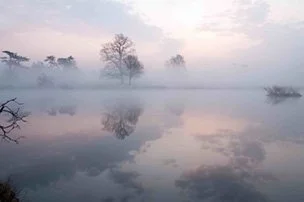
A U G U S T 2 0 1 6
The American clown, Wavy Gravy, once famously said, “I come from the land of one thing after another.” And so do we all! From getting out of bed in the morning to lying down tired at night, each routine and little task is followed by the next. Even when we take a break, those moments are quickly filled with distractions — chatting, thinking, reading, or watching a screen. One thing after another.
We can’t avoid this — it’s how the melody of life is played. This moment flows into the next, the current never stops. The problem for us comes when we feel pressured by the sense that too many things are demanding to be done next. That pressure is amplified when we worry about negative events we imagine could happen in the future. Then we feel compressed and tense, as if there isn’t enough room for us in our own life. We lose our quiet center; we lose the sense that we are present and whole.
In my own life I’ve found that pausing helps when I lose my quiet center. By “pausing” I don’t mean simply stopping what I’m doing and sitting quietly somewhere, although that’s always a good tonic. Pausing, as I experience it, can be done right in the middle of the river, and it can be as brief as a single breath. The length of a pause is not as important as its depth.
There are many styles of pausing — here are a few that work for me:
Pausing self-talk: Much of the pressure we feel in our life comes from the dominance of our mind stream, our self-talk. It’s important to notice that self-talk has two partners: the one who’s talking and the one who’s listening. We explain things to ourselves as if there were two of us. To create a pause in the middle of self-talk, simply say to yourself, “Stop talking for ten seconds.” You might be amazed to find how well it works! It may not last very long, but ten seconds is quite possible. In that pause, relax, take a breath, do nothing.
Pausing opinions: Opinions are points of view. They’re less noticeable than self-talk since they supply the background flavors to our mind stream. Often we don’t even code that we are pressured by our opinions; we simply assume they’re the truth of what’s happening. One way to notice our points of view is to recognize we’re making judgments: “I have no time for myself;” “Nobody else is helping;” “It’s always like this;” “My life is a mess.” Once you spot that you’re making a judgment, invite yourself to pause for a moment from its conclusion, from its certainty about being true. You don’t have to argue with yourself about it, just allow for ten or fifteen seconds that it might not be true. In that pause, relax.
Pausing before you snap back: When we feel pressured by events, or people’s demands on us, or when we feel misunderstood, it’s easy to get irritable. Notice how irritability feels in your body, and when you feel that rise, pause before you say a word that will hurt, since it’s like an arrow you can’t call back.
Pausing when you wake: Pausing for a minute when you first open your eyes in the morning is a good and easy habit to cultivate. It’s an intimate moment before anything is asked of you, a good time to feel thankful for your life, and to bless everyone and everything you can think of.
Pausing by asking: A humble question creates a pause. What’s happening now? What am I doing? What am I feeling? The question doesn’t presume an answer. It even lifts up its voice at the end — what’s happening now? — and the mind sails off without a clue. There, for a moment, the mind is suspended in a healing pause.
Pausing in your heart. Typically we experience the center of our awareness as residing in our head, behind our eyes. For a minute or two, allow your awareness to drop down to the middle of your chest, to your heart center. Your heart is a wordless place, but it is caring and warm. Rest there. It may help to briefly recall images of people or aspects of life you care deeply about. Let yourself care from your heart and be grateful for what makes your life worth living.
Pausing in Nature’s presence: We spend most of our time immersed in the culture and built environment of the human world, and feel we have little contact with free nature. Pausing in Nature’s presence can remind us of our first belonging. Look at the sky; breathe in its spaciousness. Sit with your back against a tree and sense the life of its roots below and its branches above. Watch water flowing. Give yourself small moments where you feel how your animal nature is undivided from the living world. Pause there.
Pausing in timeless awareness: The Indian sage Nisargadatta once advised a student who asked for guidance, “Go back! Go back!” Go back to the place where you begin, right now, the place of spacious awareness that hosts all the phenomena you experience. It is a simple move, although nothing really moves. Just open up to the clearing you already are and pause there for a moment or two. When you do that your whole life is refreshed.
I Only Want to Say
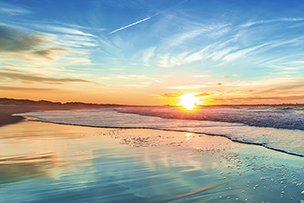
J U L Y 2 0 1 6
Now that I am old my thoughts no longer hold the certainty they had, instead they open like a river delta does, spreading to the sea, slow calm channels where grasses bow and water birds float and dive and make their homes. The torrent of my beliefs has eased, thank God, and I no longer need to convince anyone of anything. You and they will find your way.
I only want to say how good it is and how good you are, as you try to make things better, how good it is that this is the way it is, and that we are not alone and never were, the same water flowing to the sea and lifting us to the clouds. It is beautiful that we have been made like this, out of mud and air, made so finely that our eyes can shine with the dearest love.
There is nothing to be afraid of.
This may be the best, the most important job we have: to assure one another that each of us is loveable, and that mercy softens every fall. Death, after all, is a fine homecoming.
As I age and slow I wonder if my life has any meaning left. It does! Meaning beyond the need for meaning, this one that drenches me with thankfulness. I am not at war with a meaningless void. There is no need for meaning, here where we glisten like raindrops in the sunlight, each drop a prism.
Something unspeakably good is shining here, some generosity so quiet and nonchalant it leaves no trace of itself yet appears as you and me and every moment created and left behind, nothing ever personal yet everything always intimate.
Mountains slide into the sea, even oceans wave goodbye, and we are not what we seem. My mother died and poured herself into my emptiness. My father followed. I join them, even now.
So shall we walk together, you and I, and watch the evening sky turn into stars? Shall we talk together about what we think is happening? It doesn’t matter if what we say is true. God after all is too holy to know, and we can be content to say our hearts have no edge and leave it at that.
Look how we are made of the warmest light! It loves us without any words.
The Tears of the Bank Robber

J U N E 2 0 1 6
I was standing in line at a bank when a man suddenly pulled a double-barreled shotgun from under his coat and shouted for everyone to get down on the floor. I jumped behind a wide stone column and held my breath, hoping he hadn’t seen me. But the man must have noticed my movement — he shouted at me to come out from behind the column. I was terrified.
This was a dream. I was twenty-six when it happened, and I had suffered nightmares like it since I was four years old. I’m telling the story because of something that happened in this particular dream that caused my nightmares to stop, and I’ve never had one again.
My nightmares always followed the same pattern: a murderous character would pursue me, and in utter panic I would try to escape. Sometimes the bad man was a cutthroat pirate, sometimes a vicious cowboy, sometimes an evil criminal; all of them were intent on killing me. When I was a teenager the nightmares became so strong that several times I climbed out of my bedroom window just as the villain in my dream burst into my room. I still remember crawling out onto the roof and huddling next to the chimney until the cold night air woke me up.
When the bank robber dream happened I was living in a Sufi community in England, gardening, milking cows, and learning to meditate and pray. The meditation practice was having a wholesome effect — little by little it was helping me slow down and take notice of what was happening before I reacted. So when the bank robber shouted for me to come out as I hid there frozen with fear, I suddenly realized this is a dream! I can’t tell you how relieved and happy that made me feel! I was still in the dream, the bank and the bank robber were still there, and he was still shouting that if I didn’t come out he’d blast me to hell, but now I knew it was a dream.
I stepped out from behind the column and faced him. I remember his wild face, and the look of the shotgun pointed at me. Everything slowed down then, as if a great peace had settled everywhere. I smiled, opened my arms, and walked toward him. He screamed, “Stop!” and aimed the gun at my face. I took another step and then, point blank, he fired both barrels.
There was a brilliant light; the bank and my body vanished. After a moment the scene reappeared, but now I was sitting on the floor of the bank with people standing around me in a circle wondering what had happened, and pointing at me. There, curled up in my arms, was the bank robber. He was weeping. I was rocking him back and forth, saying, “It’s okay now, everything’s all right, everything’s all right.”
After twenty years of running in my dreams from what I was sure would be my death, I stopped. Facing what terrified me brought an unexpected healing. This is essentially the same healing process (turning in to the direct experience of the painful) at the heart of many forms of trauma therapy, including EMDR, Peter Levine’s somatic therapy, and the “One Rule” we use in Open Path inquiry work.
My dream-healing experience was precipitated by the sudden, mysterious recognition that what I feared had no more reality than a dream. Curiously, the tables were turned — what I was afraid of became afraid of me. When I came out of hiding, when I opened my arms and stepped toward the bank robber, he was the one who was afraid. (Some years later when I was working with a Karen shaman in northern Thailand, a woman came to tell the shaman she was afraid to go into the jungle because the spirits and ghosts might attack her there. He smiled and said, “Human beings and ghosts have one thing in common: they’re both afraid of each other.”)
My bank robber was a ghost, a dream-ghost. The moment I realized I was dreaming not only did my fear dissolve, but I was flooded with a sense of kindness and ease. Longchenpa, the great 14th century Tibetan mystic, wrote an extraordinary text called Finding Comfort and Ease in Enchantment. In it he suggests a “dream yoga” to be applied not only to dreams during sleep but to every aspect of our waking experience:
The outer world, its mountains and valleys,
villages and towns, and its living beings,
compounds of earth, water, fire, air and space,
all forms, sounds, smells, tastes and sensations,
the five sensory objects,
and the internal world of body-mind
and its sensory consciousness,
all experience, should be attended to incessantly as dream.
(from "Maya Yoga" (trans. Keith Dowman)
Recognizing our everyday reality as dream is one way of expressing the nondual view: the realization that all phenomena, though they are clearly apparent, have no substantial existence; that is, they never actually come into being as independent entities. As it is said in the Prajnaparamita Sutra:
“…no personal self exists substantially or independently, just as no apparent structure of the universe exists substantially or independently. This principle of ontological transparency applies to every subjective or objective structure or process that can possibly be experienced by any consciousness.” (trans. Lex Hixon)
The words “no substantial existence,” "ontological transparency," and “dream” point to the same realization, a realization that is corroborated by quantum physics. However, this realization is not something that can be apprehended solely with our intellect. It takes a willing suspension of our belief in the substantial reality of all “apparent structures.” This doesn’t mean that all apparent structures are fraudulent. They are just as they appear, clear and precise, but they have no claim to be existent entities substantial in themselves. Longchenpa again:
The actuality of all experience is like a dream
and in its momentary groundless gleaming,
undeniably perceptible, it is uncrystallizing light-form…
a diaphanous form of emptiness.
Recognizing the dream-like nature of everything we experience doesn’t diminish the vibrancy of life — just the opposite. It simply frees us from being obsessed by fears, since we see that we, too, are dream-like and ungraspable. Within the “dream” of relative reality, a dream that is constantly appearing in new forms, our bodies and senses of identity are as impermanent as everything else. Of course, we can’t help but become attached to body and identity and the forms we perceive. That attachment, as we know, results in the fear and suffering we are so familiar with.
So what are we, if not these changeable forms — this dream? The good news is that what we are is inseparable from the identityless pure presence that is the transparent ground of all being and becoming. We are the essence of “uncrystallizing light-form,” pure awareness appearing in all these infinite ways. Recognizing this, we wake up from the dream while still in the dream, and take the world in our arms, where its tears — and our own — are tears of homecoming.
Love and Death
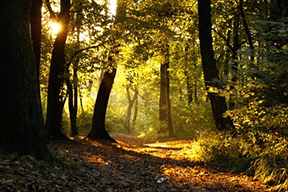
M A Y 2 0 1 6
Lying there, looking up at the doctor and your next of kin, you grow uncomfortable with their concerned faces. You close your eyes so they will think you need to rest. You hear them back out of the room and the soft click of the door. You can still hear them speaking out in the hall, most of the words indecipherable except for the doctor’s, who you distinctly hear say, “It won’t be long now.”
It sounds like a line from a movie you saw once — it won’t be long now — but this time it’s about you. Ah, so this is my death-bed. The words form again in your mind, “my death-bed,” and again, “my death-bed,” as if repeating them will make you believe it’s true. My time has come. A quiver of fear — or is it excitement? — flashes in your stomach, but it doesn’t last. You lie there without moving. It’s quiet in your room. You’re thankful they brought you home; the hospital with its noises and interruptions is not a good place to die.
You feel wide-awake, but as you cast your mind over the history of your life, letting images from different periods arise, you fall into a half-dream state and drift. Gradually you sense a presence close to you, although no one has come into the room. It’s not a presence you can identify, but it feels somehow familiar. Kind. Is it an angel? It’s asking you something. You strain to hear it, and then the words become clear.
“Have you loved well?” it asks. That’s all, nothing more.
You hear the question echoing down the corridors of your life, doors opening on moments you’re sure bear witness to your failure to love. You know this feeling, this old feeling of unworthiness, of having failed somehow. No, I haven’t loved well, certainly not well enough, good God all the times I was self-preoccupied instead of loving, impatient instead of gentle, oh God…
You feel the weight of judgment — your own, the angel’s, God’s — fall on you like shovelfuls of earth, darkening and compressing against you. You strain to breathe. But now in the darkness you sense something else — at first it’s faint, then unmistakable — it’s the smell of earth, the smell of soil in a garden where you once knelt, the dark, loamy, sweet smell of fertile soil breathing into you. How lovely it is!
Now chinks of light appear beneath you — it’s strange, there’s light beneath you and you feel yourself falling into it, but suddenly everything turns around and what felt like down a moment ago is now up, and you’re looking up into blue sky and as you breathe it feels like you’re breathing in the whole wide sky, clear and fresh. How lovely it is!
There are a few puffy white clouds balanced in the sky, precious against the blue. Two birds glide over the landscape. You hear leaves whispering in the trees. So beautiful!
Now you are walking. There’s the familiar stride of your body along the path, confident that it knows how to adjust each step around the small stones and the tilt of the ground. You remember this, how beautiful it is to walk, to feel yourself glide along past the trunks of trees, how lovely it is!
Suddenly it all becomes clear to you: the enormous gift your life has been, all the moments given you to love — the wonder of it! — to have received this chance to breathe this air, to walk in this body on the earth. Gratitude wells up in your heart: Oh yes, I have loved this!
Now you are no longer walking, now images as real as life are passing through you, images from your earliest memories, flashes of wonder in your child eyes, your mother picking you up, oh! riding your bike through leaves fluttering down around you, the images that come are as numerous as those falling leaves, tying your shoelace for the first time and looking up smiling, holding your first friend’s hand, kissing, that feeling of soft lips kissing yours, two hearts kissing, how I have loved this! And each tender, shy love I have taken in my arms, each one, each one loved, longed for, each one! Images of love pour through you in a great current of gratitude, alleluias of white birds flying up, images of stairways, carrying groceries, cooking dinner, children playing under the table, their laughter and nonsense talk, oh how I have loved this! And laying my head on my pillow so many times, its touch on my cheek, the open window in the morning billowing the curtain, the smell of coffee brewing, music from a neighbor’s radio, sunlight on the porch. I remember! The images continue, beyond telling, and your heart feels like it’s bursting with gladness. You feel yourself coming apart as if a child was blowing on a dandelion puff. You want to say something, one last shout to everyone everywhere, one last whisper in everyone’s ear as you come apart, you want to say, Love well! Love well!
When they come back into your room they see you lying there, a little smile on your lips, very still.
In One Form or Another

A P R I L 2 0 1 6
I once caught a very large fish. As it appeared from the depths of the sea off the west coast of Canada I saw it was longer than my arm, and I knew I couldn’t pull it into the kayak I was in — there wasn’t room in there for both of us. The sky was gray and close; the wind had picked up, blowing spray in my face; the rise and fall of the sea made my little boat unstable. I tied the line onto the kayak so the fish would stay close to the boat, its green body swimming next to me while I paddled to the shore of a small, uninhabited island. When I landed I pulled the fish up onto the pebbled beach. It thrashed and quivered, lay still, then thrashed again and again. I took my hunting knife from its sheath on my belt and plunged the blade just behind the fish’s head, severing its spine. At that moment I felt a surge of energy like an electric shock explode up my arm and into my body. Later that night my friends and I ate the fish, but in that moment, as the surge of energy entered my body, I felt I had absorbed its life force. It turned into me.
Yesterday I was making a soup. As I sliced the carrots I remembered that fish and its gift, and realized the carrots were doing the same thing. The carrots, like the fish in its sea, had led private lives in the dark earth somewhere, had been pulled out and now submitted themselves to my knife. There was no surge of electricity that I could feel as I chopped the carrots, but the gift was the same.
This world is constantly feeding us like that. Even this breath we are drawing in right now — the life-gift of plants — offers up its power to us, keeping the continuity of life happening. All of us are brimming with this accumulated life force given from countless sources — carrots and fish and air — plus vast gifts more intangible but no less vital, like the perseverance and ingenuity of our ancestors: hunter-gatherers, nomads, farmers, singers, builders, scientists, or the gifts of our mothers and fathers, and their mothers and fathers, and theirs, all the way back, the parents whose caring for their little ones ensured our coming into being. The life force we breathe and move with pours into us from all this like the current of a great luminous river.
We can feel this directly, and we can also feel how this luminous current doesn’t stop inside us — it keeps flowing. What we have taken in, gives. This is happening right now, it doesn’t stop. Whether we are aware of it or not, the light of aliveness pours forth from us just as it pours into us. The aliveness of our seeing, hearing, and touching, the aliveness of our warm hearts, all of it continues to illuminate the world around us just as we are illuminated by it.
Of course there are obstructions in this great current of aliveness. Meanness, abuse, selfishness, fear — none of us escape being wounded by these things, or wounding others. Our job is to learn to get out of the way, to let the luminous current flow through us and not obstruct it. This is not so easy, but we can do it.
One thing that helps is remembering to bow — to bow in acknowledgement and awe of this current of aliveness that creates and sustains our own aliveness. What a vast gift it is! The simple humbleness of our bow — not necessarily outwardly but inwardly — in recognition of the unimaginable offering of a universe that makes our existence in this moment possible… this is what helps us get out of the way. To be here, alive with this aliveness, and not to be in its way, is the best luck we could have.
Even in sickness or the decline that precedes our death, the current of life still flows in its full vitality, if we get out of its way. Then it is not so much a physical vitality as a luminous one. For within this current of livingness that we are made of is an unquenchable light. It is the invisible light of becoming — so close we can’t see it — that ignites the whole drama of fish and farmers, fathers and mothers. But now the metaphor of a “current” or a “river” comes to its limit, because this gift of aliveness is not limited by river banks — it is more like a shoreless ocean of light, or what Inayat Khan describes as “the all-pervading life in space.”
Light, life — these two words spiral around and into each other until we cannot distinguish the difference. Ultimately, and intimately, our livingness is light — we are made of light. And yet even that word — light — meets its limit, for this invisible light is not the opposite of darkness, nor is it located in one place and not in another. In the same way, “the all-pervading life in space” is not the opposite of death. Ultimately, and intimately, there is no death. The fish, the sea, the soup, the air, the ancestors, us — we are all radiances of this invisible and timeless light. Or as Jack Kerouac tells it: “We’ve been here forever, in one form or another.” Bowing down, we know what he means.
God Is Not Something Already Made
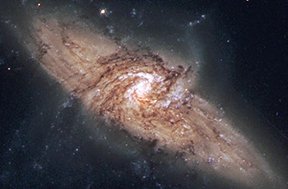
M A R C H 2 0 1 6
It can be humbling — and liberating — to recognize the limited nature of how we think. Our monkey minds swing from thought to thought, busily assembling our points of view. But when we look closely, we see that each thought is made out of words, and each word signifies a concept, and andromedaeach concept — for example, the word and concept “God” — must remain static enough for us to “know” what is meant by it. If I tell you, “I believe in God,” we both think we know what I mean. What is signified by the word “God” seems to sit somewhere for us both, like an object in space we can refer to even if we can’t perceive it directly. By becoming an object in our sentences, God assumes the identity, in our minds and language, of something substantial in itself. It (He, She) exists for us as an independent entity, already made.
This objectifying tendency of our minds — of how we think — is a necessary result of language. Each word we use stands for something that is not a word, and that “standing” presses our minds into the molds of objectification. This process is usually very helpful, as it allows us to communicate quickly and to navigate a world that, if it were perceived solely in its primordial unity, would not provide sufficient distinctions for us to survive. We, subjects, over here, perceive and communicate about those objects, over there, and we make our way among them. It’s the powerful and helpful appearance of duality in what is, in its essential nature, a nondual reality.
Henri Bergson, the great 19th/20th century French philosopher, continuously probes this objectifying tendency of our minds to help us recognize and free ourselves from its limitations. The phrase God is not something already made is his. “Something already made” is what we assume an object to be. An object is — we think of it as existing now as it was a moment ago and as it will be a moment from now. In the case of the physical objects around us, we now know through quantum physics that that is not how things are. Everything, even the hardest, seemingly most immutable diamond, is a humming mystery of quarks and energy potentials in constant flux.
But we would like our God to have a different status. We say, “He is now as He was and as He will be.” But what are we referring to? What is this immutable quality of Godness? Is the idea of God’s immutability a relic of our minds’ objectifying tendencies? If so, is it possible for us to perceive or know Godness without objectifying “it”?
Bergson suggests we do have that capacity, although it is beyond the reach of our intellects. He calls this capacity, intuition. Our intellects, he says, can serve intuition, but only to a point — then we need different wings. Bergson, who began his career as a brilliant mathematician, uses many examples to help us take flight. In one of them he recounts the old Greek philosopher Zeno’s story of Achilles’ race with the tortoise, sometimes called “Zeno’s Paradox,” which you probably heard about in school. In the story, Achilles gives the tortoise a head start in the race, but after that he can never overtake the tortoise, because in order to do so he has to first cover half the distance between himself and the tortoise, and then half the remaining distance, and then half that, ad infinitum, so Achilles can never catch up. Zeno uses this story to “prove” that movement is an illusion, and philosophers and mathematicians have fussed with it ever since.
Bergson points out that a fundamental error is made in Zeno’s Paradox by transposing the notion of time, which is known by movement (in this case Achilles’ movement), onto space. Our rational intellects, and the limits of Newtonian physics, reduce movement and time into “things” that occupy successive “places” in space, making them measurable, like the little lines on our watches that mark minutes and seconds. Bergson contends that this is where we get confused. Movement and time are not fundamentally transferable onto spatial places, although it is convenient for us to do so for certain purposes. Instead, the nature of movement and time is flow, and as flow, movement and time are indivisible. We know that intuitively, though not rationally.
It’s only natural that we humans would treat the idea of God in this same way. In order to make God intelligible, our minds imagine God as something that exists in space, something unchangeable and “over there,” already made. This habit of mind serves religions in that people can more readily conceive God as an entity to whom we can pray and whose commandments we should obey. But it is just this habit that has trivialized the enormity and mystery of Godness, and turned many of us to the other extreme: rejecting the whole notion of Godness as an outmoded, superstitious concept. But when we do that, as is evident in much of contemporary secular society, we impoverish ourselves and risk losing the experience of the sacred in our lives.
We arrive now at the “payoff” of this philosophical inquiry, a payoff that has the potential to become wonderfully liberating, in an immediate, personal, non-abstract way. How so?
If God is not something already made, and if we accept that God is All, unbounded and omnipresent, then we, you and I, are not something already made either. Our moments, our thoughts, our most intimate experiences, are all alive with becoming. What we think is happening and what we believe to be true — even our most cherished beliefs, or our everyday opinions about the people in our lives, or our feelings about our own self-worth and our complaints about life — none of it is conclusive or inherently true. Nothing is already made. All is flow.
Reality, including this very moment for you and me and the whole Enormous Show everywhere, is inventing itself as it goes. It is alive and creative and free. Of course, each of those words, “alive,” “creative,” “free,” can get stuck in our objectifying minds as things we think we know, but we have the intuitive capacity to let them loose, to sense them beyond their word-forms in the undefined, spontaneously creative openness that we share with Godness itself. This is Bergson’s famous élan vital, the living impulse that makes this endless, beginningless moment shine so brightly with becoming.
One with it — how could we be otherwise? — we are actually deathless: ever becoming, ever living, ever creative, ever free!
The Tree of Awe

F E B R U A R Y 2 0 1 6
Above the altar in the chapel at Nada Hermitage — a small Carmelite place of retreat in the Colorado desert — hangs a crucifix unlike any I have ever seen. It almost speaks. Jesus is clearly alive there, nailed to his cross of wood. His chest swells forth, almost grotesque, as if his heart is about to burst out of its confines. His face is turned, looking slightly away and up, with an expression of such surprise and awe that you imagine the sky has broken open with a supernal light that only he can see.
The symbology of this icon may be extreme, but for me it speaks exactly of our condition, each of us, here on earth. For who among us can escape tragedy, agony, loss, and heartbreak? Even those with seemingly delightful, easy lives must experience the death of loved ones, the poignancy of things passing, and witness the unhealable anguish suffered by our brothers and sisters throughout the world. It breaks our hearts. All of us live with broken hearts, whether from the great disappointment we feel for our species’ repeated descents into violence and meanness, or from smaller, but no less intense, disappointments we feel for not being loved the way we want, or for not being the person we hoped to be, or for not being understood, or for any of our countless dreams deferred. When we do experience sweet moments of love and intimacy, it doesn’t take long before things change and we get irritable or feel pressured and the sweetness is gone. That’s heartbreak too. We can’t avoid it, just like Jesus can’t avoid his cross.
Sufis speak of a timeless time when “we were what we were before we were,” a time of pure unity when there was no division between us and the Absolute. But then a line was drawn that allowed there to be lover and beloved. Loverness and belovedness searched for each other, seeking their unity, but even when they succeeded, the union could not last. “If there is pain,” wrote the 17th century Indian Sufi Kwaja Khurd, “it is this: This state [of unity] cannot be permanent, since it has been established that the self-disclosure of the Essence passes like a flash of lightning and does not remain. O the infinite pain, the endless agony!”
That, too, is our heartbreak, at least for those of us mystically inclined. Jesus’ body on that cross seems to want to fly free toward the light, but is nailed there, caught.
And yet there is something else alive for us in this polarity of heartbreak and joy, separation and unity — the vertical and horizontal axes of the cross. In a couplet written by Jelaluddin Rumi, the secret within the meeting of these two opposites is expressed:
You must have shadow and light source both.
Listen, and lay your head under the tree of awe.
The first line states the irrevocable nature of the cross we bear: we must have shadow and light both. There is no way out of it here on earth. And then the second line begins with two instructions: “listen” and “lay your head under.” We might think Rumi would use the word “see” rather than “listen,” since shadow and light are visual images, but the event of listening asks a greater surrender, an emptying out, a receiving. We lay our head under and stop trying to think our way through this. What is happening is so far beyond what we can know.
Lay your head under the tree of awe. Supernovas explode, lovers hold hands on garden paths, babies are born, bullets kill, Christ is crucified, birds glide in the light of dawn, our hearts break for all that is lost — there is no other response possible to the irreconcilable enormity of it all, but awe. The tree of awe isn’t something that is finished. Its branches grow infinitely into the farthest heavens and into the most loving and agonizing moments of our lives. Lying here, looking up at it, there is nothing more we can say, but at least we know we are in good company.
Your Gift

J A N U A R Y 2 0 1 6
In a decade or two, maybe less, I will no longer exist. That may be true for you too, though you may have a bit longer. Our lives are like little flowers blossoming on the mountainside, appearing beautifully, and then they’re gone.
mountain rainbowYou may feel, as I do, that not only do you want to enjoy the time you have left, but that you also want to offer something back to this world that made you — this world you are a part of — so that your existence here will have been, in some small way, of benefit.
This feeling of wanting to give back can charge your life with meaning and blessing, but it can also be a curse. It can be a curse especially if you look around at your life and see only its limitations. If you feel you don’t have the options, position, energy or charisma to offer something of value to the world, then you can end up feeling useless and small.
But the truth is you are not small. None of us are. We may be like little flowers on the mountainside that will soon disappear, but that’s not the whole story. Even if it seems your life is limited in its outward scope and influence, there is something alive in you of much greater scope and influence.
You can directly sense what I mean by following a few simple steps: (1) pause; stop trying to solve any problem; (2) bring your attention to the center of your chest; (3) sense the living presence that is gathered there — in the middle of your chest — sense its livingness; (4) using your intuition, without applying any mental pressure, notice that the quality of that living presence in your chest is like an invisible light, a silent radiance.
That radiance is your gift. It may be unsteady or it may be strong, depending on the confidence of your love. In one way it represents the sum total of all the impressions you have received in your life and what you have done with them; it reveals if the pleasure you have experienced, and the suffering, has nurtured self-obsession, or compassion.
If you sense the invisible light in your chest is weak or unsteady, you can change that. It’s not easy, but you can do it. The most important thing is to realize that it’s possible to do, right in this moment. No matter what hardships you have endured, you can do it — nothing prevents you but your belief. The invisible radiance that emanates from you is one of the most powerful healing gifts you can offer to the world.
That may sound on the surface like a spiritual fantasy, but what I’m speaking of is as real and effective as any outward action you might take. I’m not saying that outward action is not important, of course it is, but this “light” that comes from you also has the power to change and heal. It enters the zeitgeist — the spirit of the times — directly and continuously. It touches those around you without your saying or doing anything. And if your options for “giving back” are limited by your situation or your health, the potency of your heart light is not. As Rumi said it: “Be the person who, when you enter the room, luck goes to the one who needs it most.”
A friend of mine, a psychotherapist, once told me about an extraordinary man he had known named Anthony (Tony) Sutich. Tony had been a pioneer, along with Abraham Maslow and others, in the development of humanistic psychology in the 1950’s and ‘60’s, and had been instrumental in creating the field of transpersonal psychology. He founded both the Journal of Humanistic Psychology and later, the Journal of Transpersonal Psychology. He was a mystic, a psychotherapist, a social activist, and had a profound effect on all who met him.
This was extraordinary because Tony had been hit by a bat during a baseball game when he was twelve, and was almost completely paralyzed for the rest of his life. My friend described to me what it was like to be in Tony’s presence. When he’d visit him, Tony would be lying propped up in bed, only able to tilt his head, speak through clenched teeth, and move one of his hands. Yet from him there radiated such love — my friend actually described it as light — that everyone present was transformed by it. They felt accepted, loved, and inspired.
Of course, Tony Sutich was a brilliant and exceptional man. But the radiance that came from him is something each of us has naturally. We can sense it in our heart, and nourish it in our being every moment, even now.
Staying Steady in Life and Death
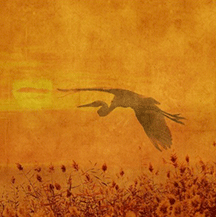
D E C E M B E R 2 0 1 5
Thirty years ago my life turned upside down. It was very dramatic — my marriage collapsed, a new one tentatively began, I gave away my business, left my home, land, and family. I had no idea what was happening to me, or what was supposed to happen next. In a state of turmoil I called my spiritual teacher on the phone. He could hear I was about to break down. I remember two words he said during that call: “Stay steady.”
Stay steady. Perhaps because those two words were spoken by him and not someone else, I could let them in. They had an immediate effect on me, although I didn’t actually do anything to stay steady. It was just the sense he gave me that there was the possibility of steadiness in my chaotic situation that gave me the faith to carry on. Three decades have passed since that time, and I can say I understand now a little better the gift of those two words.
Our experience of life is constant change, moment to moment, little changes and big ones. It can feel sometimes as if we are a pebble tumbling along in a stream, or a leaf blown by the wind. Everything that comes, goes. When we try to hold on to stability by grasping on to things or life situations, it doesn’t work, because nothing is permanent. It also doesn’t work if we try to hold on to our points of view, or our ideas about our identity. Those ideas may be based on feelings of our importance, or of not being as good as other people, or on our work in the world, but whatever ideas and feelings our identity rests on, in the end they don’t help us to stay steady through whatever comes.
The steadiness I’m talking about is not based on anything, yet it’s always available to us. It’s something completely intimate, right here in this moment. But it can’t be found like we might find a big rock to climb on in the middle of a river. It doesn’t take up space like a rock does, although it is spacious. At the same time its clarity is familiar to each of us because it’s the one thing that doesn’t change, even though everything we experience keeps changing. We might call it “the continuity of presence” that is neither different from, nor the same as, what we are experiencing.
If you try to envision the moments at the end of your life when you’re about to die, you might imagine that those moments could be filled with disturbing feelings: fear, sadness, pain, confusion, anger. How will you stay steady then? Where will you find steadiness? Perhaps when you hear that question and really take it seriously, you can sense the answer. Your steadiness at the time of your death will depend upon how well you can accept what’s happening in the moment and let it come in, holding on to nothing, not even to the idea of staying steady. Openness like this becomes pure faith, as in Jesus’ last words: “Into Thy hands I commend my spirit.”
In the same way, we can open to steadiness in the midst of our life. Of course, it is not always easy to do — the discovery of our “steadiness” must be continuously refreshed. These are old patterns of mind — we’ve invested a lot of energy in keeping things the way they have been, including our familiar suffering and the ideas and feelings that cobble together our identity.
Learning how to stay steady in the midst of the troubles — and joys — of our life is no different from staying steady as we die. It requires us to accept what’s happening and grasp nothing. In the clarity of that openness we can be completely present, in touch, unshakeable, and alive.
The Practice of Openness of Heart
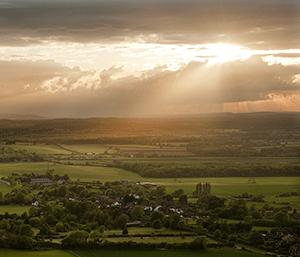
N O V E M B E R 2 0 1 5
Each of us is carrying around a priceless treasure — our openheartedness. Although it is often covered by our thoughts and agitation, the openness of our heart is always there, waiting underneath; it can’t be diminished or destroyed. There is nothing more important in life than uncovering our heart quality, our openheartedness. It’s what allows the world to touch us, and what allows us to touch the world. If we feel life has betrayed us, if we feel life is not really worth living, or that we ourselves are not worthy, it is because our natural openheartedness has been covered over.
We can’t grasp this heart quality with our intellect; we can’t understand it, but we can free it. Freeing it takes practice, because our judgments and disappointments about our lives can be so stubborn. How can we take on this practice?
Heart opening usually happens without our intention — it just happens. We all know this in the “love moments” of our lives, when we spontaneously feel the preciousness of another being or of a situation. A baby looks up at us as it crawls on the carpet — the baby, the look, the sounds from the kitchen — all of it suddenly precious and fleeting and sacred. Our openheartedness in that moment is freed. But moments like this are all too rare, and we must learn to invite them into our lives by gently practicing openness of heart.
One simple way to do this is to follow three “movements” that can be described as calming, opening, and blessing. In order to practice openness of heart, it helps to be calm. Calming the body, sitting still, stopping for a moment the flow of our activity, breathing quietly, letting our thoughts pass by without obsessing about them — these are the familiar methods of meditation that help support our calmness. When we are calm, our whole being comes together in its natural presence.
Then, calmly, we can turn our attention to our chest area. This is where we can first sense our heart quality. It’s not the physical beating heart, but something intangible, something very subtle and tender and alight. At first we may not experience anything identifiable, just a slight spacious feeling. If we relax right there — and this is where calmness helps — the second movement of our practice begins: opening. We allow that small, spacious feeling in the center of our chest to have the full share of our attention. We open to it. As we open to it, we notice that it, too, is opening. It doesn’t stay in our chest but expands like an invisible light into the clarity of our mind, our sight, our hearing, and into the totality of our perception.
This sense of openness is subtle, and we can easily look past it for something juicier and more tangible. But once we realize that it isn’t tangible, that it is openness itself, we become comfortable with its subtle nature, and we can allow it to saturate our whole being in its gentle quality. It feels good, but what we’re feeling is not like other feelings. It is goodness without an object. It’s a kind of warmth, but not a warmth of temperature. It’s like a radiance without any source, a radiance that fills our inner life and our outer life simultaneously. That is the heart quality, pure openness of heart. We could also call it warm-heartedness, or kindheartedness. Although it is subtle in itself, it is the very power that will save the world, and continually does. In the storms of selfishness and violence that have devastated human history, this delicate heart quality is the very thing that has guided our ancestors and allowed us to survive. It reveals to us what truly matters, and what is worthy of our care.
The final movement of our heart practice — blessing — comes by itself, though we can learn to direct it in specific ways. When our heart has opened this profoundly, we can imagine that we are able to gather, for a moment, this intangible light, this warmth, this kindness, into a singular current that streams out of our chest toward a particular person, or a group, or a situation in the world. For a moment — and it doesn’t have to be long, perhaps as long as a kiss — we imagine this current of blessing flooding into and around that person or situation. It blesses.
Notice that when practicing openness of heart in this way, the practice relies upon our feelings and images of embodiment: our calm body, calm breathing, calm mind; our chest and the small spacious feeling there; openness flooding through us; a current of light streaming out in blessing. These images give form to what is formless. After a while, when we are well practiced, these images can soften, and even fall away. Then our practice of openness of heart becomes like a song without words.
The Gift of the Flower

O C T O B E R 2 0 1 5
“You see that flower?” my friend Quays asked me, pointing to a dried-up daffodil propped in an empty glass on his kitchen table. “It’s got a story. You want to hear it?”
“Sure,” I answered, curious. Quays was an eccentric little guy living on an aging houseboat tied to the side of a canal in an industrial area of Amsterdam. His boat was littered with found objects, broken clocks, seashells, and potted plants growing haphazardly all over the deck.
“Well,” he said, “three weeks ago I was walking home from my girlfriend’s. It was maybe two or three in the morning. She had given me that flower. I was so happy. I was humming a little tune and holding the flower in front of me, like I was singing to it.
“Then two guys came out of the bushes ahead of me. They looked rough. One of them said, ‘Hey, buddy.’ I stopped. They came up on either side of me, and the same guy said, ‘Okay, no trouble. Just give us your money and you can be on your way.’
Quays looked at both of them, back and forth.
“Am I getting mugged?” he asked. “I’ve never been mugged before! That’s cool. Wow! I’ve always wanted to be mugged! Here, I’ve got some money, not so much, but let’s see.” Quays took out some bills crumpled in his pocket and handed it over to the guy.
“Wait a minute,” Quays said. “I might have some more.” He hunted in his coat pockets and pulled out another bill and some change. He dumped the money in the guy’s hand.
“You can have all my money,” Quays said. “You need it more than me. Just one thing, one thing I ask: Just don’t take my flower.”
Quays held up the daffodil.
“You can have anything else. Hey, in fact, if you come home with me I’ve got some more money at home. You can have that too. I don’t live far from here. C’mon.”
Quays started walking, holding his flower in front of him, the two bewildered muggers trying to keep up with him. As they walked, Quays kept talking, telling them they could have whatever money he had at home, it wasn’t much, but he knew he had some. And he’d make them a pot of coffee.
“Do you like coffee? I’ve got some really good coffee, and some little cakes I made too. You can have whatever you want. Just don’t take my flower.”
Quays kept talking away, telling them about all the things he’d give them — except this one thing, holding up the daffodil. “Just don’t take my flower.”
At last one of the muggers stopped him. “Okay buddy,” he said. “Gimme the flower.”
“Oh no!” Quays said. “Not the flower! My girlfriend gave me this. It’s very important.”
“Gimme the flower,” the guy insisted, reaching for it.
Quays pulled away. Then he said, “Okay, look. You can hold it, but you can’t have it, okay? Just hold it until we get home. Be really careful.” He gingerly handed the flower to the mugger.
“So there we were,” Quays told me. “Can you picture it? Walking along together, this tough guy holding the flower in front of him as careful as could be?”
They got to Quay’s houseboat. Quays showed them around the place, and pulled out whatever money he had, making a little pile on the kitchen table. The daffodil sat in a glass of water next to the money. He served the two guys coffee and cakes and whatever else he could find. They talked. Time passed.
Then one of the muggers — the one who had taken Quay’s money on the street — dug into his pocket and pulled out the money. “Here,” he said. “Take your money back. We don’t want it.”
Quays protested, but both muggers were now adamant. “Keep your stupid money. Just shut up now. You keep it.”
Quays finished his story to me: “After that, they left. We even shook hands. They left the money. I told them they could have the flower, but they said I should keep it.”
• • • •
I remembered this story of Quays’ flower as we were preparing for the 2015-16 Living Sufism telephone conferences. This year we’ll be exploring "Inner Life and Outer Engagement" — how our inner work can help us respond more wisely and compassionately as the storms of global crises intensify (climate chaos, species extinction, soil loss, ocean acidification, water scarcity, injustice, and mass migrations, to name just a few).
These perils are upon us — like the muggers coming out of the bushes to threaten Quays. Of course, the analogy is not perfect. We won’t reverse this enormous tsunami of problems simply by being unafraid and friendly, as Quays was — although it will help.
Quays’ response to the muggers was the ultimate aikido move — he invited them into his home; he didn’t make them “other.” They couldn’t take his money, because they had been treated like family. He was fearless in his vulnerability — spontaneous, open, friendly, and unafraid.
But his response shows us something even more profound. Quays held onto the flower and let it be known that the beauty it signified was more precious to him than money. His loyalty to that beauty transformed the situation. “This matters!” he insisted. “This we must protect!”
What is the beauty we are loyal to? What is the flower we must protect? What faithfulness will guide us through the rough times head?
Two Homeless Men
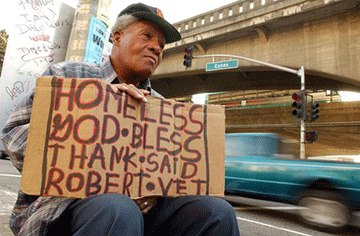
S E P T E M B E R 2 0 1 5
I met a homeless man the other day named Zack. He was sitting cross-legged against the wall of a bank. He had long grey hair and wore a necklace of beads and porcupine quills above a faded cowboy shirt. His sign said he was a 72 year-old vet. After talking a while, we discovered we both were born in the same place, Fitzsimmons Army Hospital in Denver, he in 1943 and me in ’44. We shook hands at that, as if it somehow made us brothers.
He told me stories about his life, all of them having to do with God’s grace in taking care of him when he was in danger in Vietnam and in the States. He told how God opened the wisdom of the Bible to him, but that God hadn’t stopped there. When Zack was later given a book of the Buddha’s teachings, he asked God if it was okay to read Buddha’s book. God told him it was fine. So he read that book and found the same truth in it he had found in the Bible. Then it happened again when someone gave him the Bhagavad-Gita, and again when he was given a copy of the Quran.
“God keeps teaching me,” he said. “And he takes care of me, and I take care of others as best I can. You know, I never know what’s going to happen tomorrow, but I know I’ll be all right.” Then we said goodbye and I gave him ten dollars, much more than I usually give. “You see what I mean?” he said.
Zack’s faith filled him with an inner strength that was contagious. It was the same with his embrace of diverse people and beliefs. I went away feeling uplifted by his spirit.
Last winter I picked up another homeless man hitchhiking on a forlorn stretch of road in the desert of southern Colorado. I had been enjoying driving alone, listening to Schubert’s Trout Quintet, and didn’t want to stop. He was obviously homeless, with several coats on, long matted hair, a sleeping roll and backpack with boots and things hanging off it. But as I was about to pass him I remembered once being in the same position, hitchhiking in the middle of the Nevada desert, the rare cars taking no notice of me. So I stopped. After he loaded his gear in the back seat and sat down next to me I was sure I had made a mistake — the car filled with the smell of unwashed body, unwashed clothes, and wood smoke.
But over the next two hours I heard his story, and came to feel blessed to be in his company. His name was Reed. He too was a vet, had been wounded, came back home and started drinking heavily. He got into hard drugs, his wife left him for another man, and finally he tried to kill himself. That’s when he found Jesus and his life changed.
For the past eight years, he said, he’d been traveling up and down the West, on this same route, from Phoenix, Arizona to Cheyenne, Wyoming, visiting a network of vets who live in towns and cities along the way. Most of the guys he visits live alone, some of them banged up physically from the wars, others mentally unstable. Reed stays with each of them for a few days or a few weeks, helping out, fixing up their places, doing chores. He doesn’t ask for any money; he gives what he can and then moves on. A homeless angel.
The UN has announced there are now 60 million refugees and internally displaced people on the planet, even more than during World War II. All are homeless. Many are trying to migrate to wealthier, more peaceful countries. We don’t know what to do in response to this heartbreaking invasion. We’re afraid. But these millions are people like my two friends — ordinary people put through hell, trying to keep faith and take care of each other.
The enormous migrations now flowing across the world are a problem that’s not going to go away. We in the wealthy countries can either respond from fear — build more walls and isolated tent camps — or we can respond with love. After all, the homeless of the world are members of our human family, and it could happen that we, or our descendants, might one day join their ranks.
Perhaps we can take a lesson from the ecumenical embrace of other traditions and other people shown by Zack, as well as from his own deep faith that we all can get through this in a good way. And we might take another lesson from Reed, giving support to those in need as generously and creatively as we can imagine.
Many homeless migrants will want to return to their home countries when the disruptions that forced them out come to an end. Others will want to make new homes with us. Can we share with them what we have, and in doing so find the faith, generosity, and skills needed to make good homes and safe lands, for all of us?
Loaves and Fishes
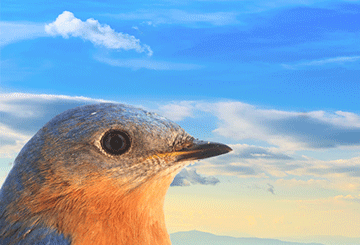
A U G U S T 2 0 1 5
I went to Mass the other day at the small desert chapel near my home. As I walked along the dirt road leading to the chapel I noticed a bluebird hopping along the edge of the road. As I passed she flew, but she only managed to clear a sagebrush and then landed again. It looked like she had a broken wing. I felt helpless, knowing it would just make matters worse if I tried to catch her. Well, maybe she’ll be okay, I hoped, and went on to the chapel.
In his homily, Father Eric recounted the story of the miracle of the loaves and fishes, how there were all these hungry people — thousands of them — following Jesus around, but there was no food available. Jesus had just heard of the murder of his friend, John the Baptist, and was grieving. But the peoples’ hunger touched him — both their spiritual and physical hunger — and he asked his disciples to find a solution. The disciple Philip was a can-do sort of guy, Father Eric said, but even he couldn’t come up with a solution, except to send the people away, which would be like sweeping the problem under the rug, and wouldn’t respond to either of their hungers.
But then a small boy pulled on Jesus’ sleeve and offered him five little loaves of barley bread and two sardines. We know the boy was poor because barley bread was the staple of the poor — the better-off people ate wheat. These were small loaves that could fit into the palm of your hand. We remember what happened next — Jesus took the bread and fish and miraculously fed the multitudes with it.
That was a miracle for sure. But there was a prior miracle: the moment the boy tugged on Jesus’ sleeve. His offering wasn’t a solution to the problem, but it was the best he could do. I imagine the look on the kid’s face, lifting up the hunks of bread to Jesus. Right there, that’s the miracle, in that gesture. The boy knew he couldn’t solve the problem but that didn’t matter. He offered what he had from the innocence of his heart.
After the Mass was over I started walking back home, when I suddenly understood it. In our time each of us is facing “the hunger of the multitudes”: the slaughters, wars, suicide bombers, refugees, climate change, soil loss, species loss, racism, injustice, inequality, despair. We are facing problems of such magnitude and complexity that we naturally shrink back from them like the disciples — denying them or avoiding them. After all, what can we do? There are no solutions — at least, not solutions that we have much power to make happen.
But we do have our version of little barley loaves and sardines. What is it? What is it we have to give?
Our care.
Caring may not change anything, it may not assuage anyone’s hunger or avert any disaster, but it’s what we have. This little tenderness of our hearts, this caring, this willingness to be touched by the world’s suffering — we can offer this. Every act of caring, no matter how small, frees us from self-absorption and disconnection, and acknowledges our interdependence.
Some Christian commentators have suggested that Jesus didn’t actually multiply the number of loaves and fishes. They say what happened was that people saw the little boy’s gesture and were ashamed they were hiding food in their robes while the boy gave his away, so they all brought out the food they had and everyone shared and everyone had enough. That’s a miracle too. One child’s caring ignited everyone else’s.
But what our care produces in the world isn’t really our business — we don’t care in order to produce an effect. We just care. Our caring will show up however it does — in acts of kindness, understanding, generosity, patience, protest, resilience, creativity. In the end, acts like these may not save the world, but at least they’ll grace it.
As I walked back from the chapel I came to the place where I had seen the bluebird, and there in the middle of the road was her dead body, squashed by one of the cars leaving the service. No one’s fault. And yet the great juggernaut of human heaviness was what rode over her, just like it is riding over the delicate world, just like it killed John the Baptist, just like it hid the loaves under peoples’ robes. What can we offer in the face of that heaviness?
I picked up her body and took it into the desert away from the road, said a little prayer and buried her. It wasn’t much; it wasn’t a miracle. But it was what I could do.
Summer Reverie
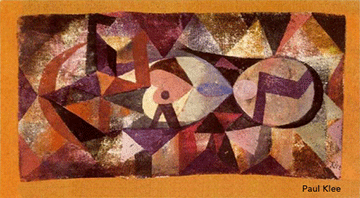
J U L Y 2 0 1 5
The pages of summer are turning now, like a big children’s book with large print telling simpler stories than winter did, the pages falling lazily open, almost by themselves, pages showing quiet dawns with only birds around, then breakfasts and plans happening, then stories of wonderment and fear that fill the noons and afternoons, stories that end always back home at evening with stars in a sky painted aquamarine, and then we sleep.
We dream. We dream slow roiling dreams of how all this has come to be, how over millions of seasons and days we were made from light and the stuff of stones and water, how we were fashioned into plants and animals, into canopies of leaves swaying, into small paws on the forest floor, and then a sudden click of stick, our ears go up, and then a pounce and we change form, again and again, all of it changing, all of it given, the sun given to warm us, the earth given to hold us, the dream given for us to see we are the given, given here as the merest drop of sperm and egg, given to grow in the womb of our mother, given there the same as we are given now, given now the same as the moment we were lifted from our mother and given to her breast, given to be beings like this, walking on two feet, the planet looking out of our eyes, us upright, free moving, vertical with voice above heart above belly above knees above feet, unrooted from the planet but given from it, everything, all of it, given!
We wake, still half dreaming, and ask, “What has given all this?” But almost as soon as we ask we know that if we try to answer we’ll be just making something up, for this that gives is hidden in the given and can’t be taken out.
“But is something asked of us?” we wonder. “We’ve been given everything! Everything! For what? Is something asked of us?”
Lightly we fall asleep again and dream these words:
“Miraculous Beings! You are given to give! You are given to give! Give thanks! Give praise! Give love! Give warmth! Give forgiveness! Give kindness! Give!”
We wake again and see a new page falling open on a summer morning.
Sad News
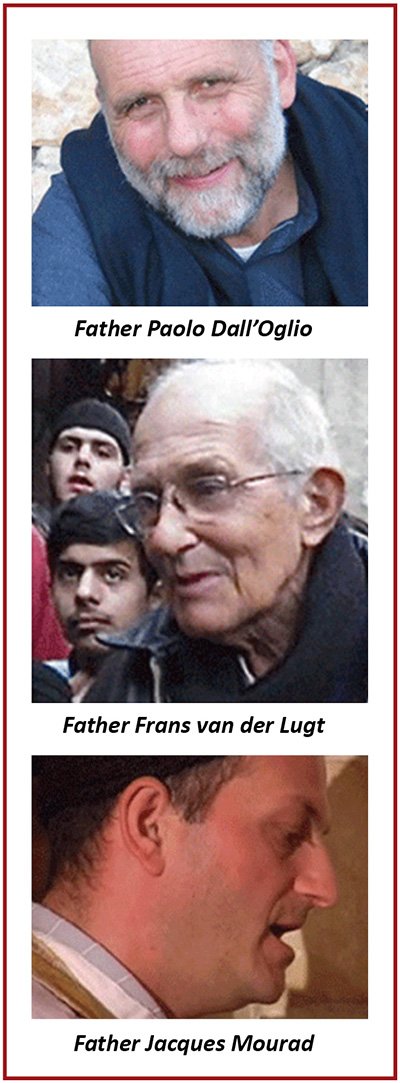
J U N E 2 0 1 5
Many of you who read these Notes have generously donated to our appeal for funds to support children refugees at the monastery of Mar Elian in Qaryatayn, Syria. Sadly, the work at the monastery has been imperiled. On May 21, four armed men from ISIS entered the monastery and abducted the abbot, Father Jacques Mourad, along with a co-worker. There has been no word if he and his colleague are still alive. Father Jacques was a friend. A soft-spoken man with an air of gentleness around him, he gave the energy of his life each day to comfort those suffering from the war.
Now all three priests we knew and worked with in Syria have been silenced: Father Paolo, abducted and presumed killed by ISIS in Raqqa where he went to appeal to them for mercy for other prisoners; Father Frans, shot dead in the courtyard of the Jesuit refuge in Homs where he worked without pause to serve the Homs community under siege; and now Father Jacques.
These men were warned their lives were in danger. Friends insisted that they leave for their home countries — Italy, the Netherlands, and France — before it was too late, but they refused.
Father Jacques: "As the priest and pastor, I will never leave this place so long as there are people here, unless they hunt me down."
Father Frans: “I have learned about the generosity of the Syrian people. As I was with these people in their good times, I am with them in their pain.”
Father Paolo: “I have been thinking of the words of the disciples to Jesus in the gospels before he died. ‘Must you go to Jerusalem?’ they asked. And the answer is yes — sometimes you must go to Jerusalem. You must go with your physical body in order to be there.”
For us who are not faced with such a decision in the midst of a war — to stay or to leave — what can we learn from the self-sacrifice of these priests? We might be in awe of them, or baffled by their decision, or even repelled by it, but their action nevertheless reveals something about the human soul’s capacity for love that may give us a glimpse into the awesome mystery of our own identity and our own capacity.
The Sufi mystic Inayat Khan describes the soul not as an entity but as a current, like the current of a vast river of becoming — a radiance rather than a thing. Each of us can experience this current directly, not as a concept but in the intimacy of the present moment. If it remains a concept it doesn’t reveal very much. The intimation of the luminous current that is soul only shows itself directly, without interpretation. When it is revealed like this, we recognize that all of us are this same current, this soul. It is not isolated inside our privacy; it is an invisible radiance happening all at once, shared by all.
I believe the faith of these three priests was so profound that they realized this commonality of our souls’ provenance, the universal current that runs deeper than the specific stories of any religion. Each of them served Muslims and Christians without discrimination. They knew in their bones the unity behind the diversity we experience. Their generosity flowed naturally because it was not encumbered by a presumed division of self and other. To them, Jesus’ admonition to “Love your neighbor as yourself” was not an analogy, but a simple description of the way it is.
In the early spring a few years ago, I went for a walk with Father Paolo on a rocky trail behind his monastery of Mar Musa, a stone eyrie originally built into the desert cliffs in the 10th century. There had been a light snow during the night that was now melting in the morning sun. We sat on the ground next to a wide rock and watched the water running down the rock’s surface. It glistened with little flashes of rainbow light. Father Paolo was moved by the sight of the light-filled water playing over the stone in this dry land – he took it as a good omen for the interfaith project we had been discussing.
“You see how the water sparkles there and there and there?” he said. “It is the same water, but look how it shines with different colors!”
Father Paolo, Father Frans, and Father Jacques could not leave their people because they were their people, even the armed men who came to silence them. When thirty men, all masked, attacked Mar Musa in 2012, as Father Paolo recounted to an interviewer in Beirut, “the monks and sisters talked to these men, and invited them for tea. The men found themselves in a different world, and their humanity started to surface. These are our people too.”
That is the embrace of kindness these priests offered with their lives. They saw how our many souls are one from the same sacred source. Their first concern was not self-protection but faithfulness to this truth. The sad news of their being silenced holds within it this good news, the message of love their lives revealed.
Blessedness
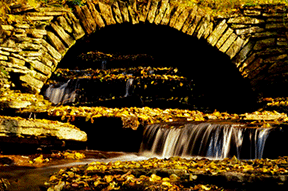
M A Y 2 0 1 5
I went to visit you before you died, do you remember? I came to your little cottage for breakfast and then we spent the day together. I brought croissants and orange juice. You made that delicious coffee. I remember how sunlight — blessed sunlight! — slanted through the window and spread across the breakfast table like a benediction. We knew you were dying, that the cancer was taking you fast, but you still had your plan to beat it with some kind of wavelength machine you had ordered. It hadn’t come yet.
Our glasses of orange juice were golden in the sun. The croissants left little crumbs on our plates. All the trivial details that day felt important. You went into the back room, rummaging around and brought out a fur hat you said was your favorite. “Here,” you said, “I want you to have this.”
We took a long drive through the countryside and got lost twice. Do you remember that little stone bridge we stopped at? We spoke about the method they must have used to build its arch, a century or so in the past. We sat on the bank near it and tossed little twigs into the water as we talked.
I told you my vision about light and you really understood it. Not many people got it so quickly. Now that you’re dead — what an odd word! — you probably understand it better than I do. I pointed out how light rays (or waves, or whatever they are) obviously go in all directions because when we move our heads from here to here there’s no interruption of the light rays coming from, for example, a little white pebble at the water’s edge. And what was equally amazing — all the light rays from all the things we could see were passing through each other without bumping into any other light ray. The whole place was dense with constant light! You looked down at your hands and your clothes and said, “Look! I’m that way too!”
Then we speculated about the universe, how the light from all the stars was going in all directions all at once too, so that even as the earth zooms in its orbit around the sun we still can look up and see uninterrupted light from each single star — now from here and now from here, fifty miles away from where our eyes were a moment ago.
I remember that moment. You looked at me and said, “That means the whole universe is not dark at all, or even empty — it’s filled with light, everywhere! It’s solid light!” We were quiet then, taking that in.
That was when it happened, that sense we had of perfect meeting. Up to then we had been good friends, of course, but this was different. It was like suddenly we weren’t there as two people, you and I, but as one “Here” without form, transparent to ourselves. There was a sense of clearness right through us and right through everything, and yet the patterns on the water, and the shapes of the bridge, and the trees, and our bodies were all still there, specific and vibrant.
We looked at each other again and I saw the tears on your cheeks. It was unbearable, how that moment hurt. After another long silence watching the sun wavering in the water, I said to you these lines from Kerouac:
There is a blessedness surely to be believed, and that is that
everything abides in eternal ecstasy, now and forever.
You didn’t say anything back. We helped each other up and walked back to the car in the sun. And then when I started the car you looked over and asked, “Where shall we go?” We both smiled a little, I think, and then I remember we leaned toward each other, restricted by our seat belts, and bonked foreheads. Thanks for that day, thanks.
Oh!
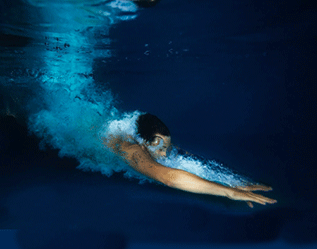
A P R I L 2 0 1 5
Imagine this scene… You’ve been visiting a friend who has a cabin near a lake. It’s 2 AM, and not being able to sleep, you wander down to the lake in the dark. No one is around. You walk to the end of the dock that extends out into the lake. Daring yourself, you take off your clothes and stand there in the blackness.
The night sky is cloud-covered and dark, no stars. Your body is dark and the water below is dark. The darkness is cool on your skin. You want to dive forward into the air and the dark water, but you are afraid. Even the feeling of your fear is dark.
As you hesitate there, your whole life seems to be compressed into this moment: the way it has felt all these years to be a self, your self, alone in the midst of what’s out there and what comes next. It’s been this way for as long as you can remember: the sense of being you in here, confronting the it out there.
The darkness becomes so intense you withdraw from it into the only safe place you know: your self. But now with a shock you feel your self is just as dark as everything around you. There’s no safe place, no refuge. The darkness goes all the way through.
At that moment you give up. You stop caring about being safe or not being safe. What the hell… without planning or thinking, you dive into the darkness.
Suddenly the intensity of the darkness is overtaken by a silence that is even more intense. Your body, stretching forward in a perfect arc, is enwrapped in silence. For that brief moment suspended over the dark water, the passage of time stops. The silence reveals itself to be without beginning or end, or to have any duration. It goes right through you. You are silence.
And then the world erupts into a crashing, splashing roar of cold water, bubbles, and light flashes churning in the silence that doesn’t move. The coincidence of timeless silence with the coitus of body and water snap the last thread of your old separateness, and as your head surfaces you shout, “Oh!”
• • • •
“Oh!” is the best of our words. Nearly pre-verbal, nearly without meaning, it is the spontaneous sound of mystic surprise. It is the sound of humility and honor, of welcome, surrender and awe all at once. It is the sound of the nude soul opening into its home light. When Sufis invoke names sacred to them they say, “Ya!” which is their way of saying “Oh!” “Ya Hayy!” — Oh Alive! — “Ya Fatah!” — Oh Openness! Or as Mechtild of Magdeburg sang in her prayers:
Oh burning mountain! Oh chosen sun!
Oh perfect moon! Oh fathomless well!
Oh unattainable height! Oh clearness beyond measure!
Oh wisdom without end! Oh mercy without limit!
It is a sound that fits great choirs of angels in their praise, and a sound that lovers tell no one else. At the moment of our death it may be our last sound. “Oh!”
Could “Oh!” also be our most intimate spiritual practice? Could we let it voice the surprise of our hearts as we wake in the morning, or turn a corner, or see the light in a passing face, or when we hear the news of a plane crash or a bomb going off and wish to offer something to the dying ones — “Oh!” This sound doesn’t even have to be spoken, because before it is a sound it is silence as big as the sky — the silent, blissful, transparent now, ever surprising us with what we are.
Clear Light and the Beauty of the World
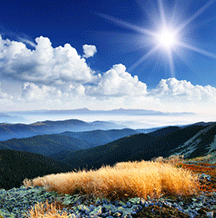
M A R C H 2 0 1 5
At the moment of our death, when the messages of our senses cease and the contents of our mind become transparent, The Tibetan Book of the Dead offers this instruction:
Remember the Clear Light, the pure Clear Light from which everything in the universe comes, to which everything in the universe returns; the original nature of your own mind…. Let go into the Clear Light, trust it, merge with it. It is your own true nature, it is home.
When I first read that passage as a young man I was deeply moved and reassured — it assured me that the confusion and loneliness I felt as a twenty-two year-old would vanish one day in that great, final homecoming. I didn’t understand what this “Clear Light” was, but it didn’t matter — the certainty of the voice in the Book of the Dead comforted me. The Clear Light would come.
And meanwhile, I would just have to make the best of it. So in the years that followed — my twenties and thirties — I kept attempting to find or build some kind of substitute, metaphorical home in which I could belong during my exile here on earth.
I realize now that I had succumbed to the old polarity of my species: the sacred hereafter and the profane here, heaven and earth, light and dark. As far as I can understand it, this polarity has its genesis in our need to identify ourselves as individual beings separate from the other beings and objects of the world: me in here and all the rest out there. The dominance of the “me in here” sets up the added polarity of my suffering and incompleteness now versus the promise of redemption and homecoming in the future.
Of course, these kinds of polarities are understandable — we are two-legged organisms walking about, seemingly disconnected from the earth and sky, and anxious about avoiding any dangers that might be lurking on our path. It appears we are separate beings.
It took me a few decades of spiritual practice and inquiry — not to mention the normal sufferings life provides — to realize that the nature of reality only appears to be split into these dualities. As one of my teachers, Murshida Sitara Brutnell, once cryptically said, “There is no other.” This whole show is one magnificent Happening, one awesome Brilliance reflected in the infinite prisms of possibility. Which means that we — you and I right now, every humming atom of us, every thought and feeling, every movement — are inextricably part of this blossoming of spontaneous light.
Sufis call this wahdat-al-wujud, the Oneness of Existence. Nothing stands outside of its Oneness and Suchness — there is no other. The multiplicity of the phenomenal world is sometimes imaged by Sufis as a veil over the Absolute, though the veil and the Absolute are not seen as two different things, rather “the veil is the external epiphany of the Absolute.” Or, as the 14th century Persian Sufi Mahmud Shabastari wrote, “The whole world of Being is the beams of the Absolute Light. The Absolute remains hidden because it is so clearly manifest.”
Which brings us back to the Tibetan notion of the Clear Light, surely the same as Shabastari’s “Absolute Light.” The Clear Light is not, as I had first thought, something waiting out there to welcome me when I die. It is present now, right here, both as perceptible as all the apparent things and thoughts and feelings of this world, and as imperceptible, invisible, and transparent as the awareness in which these words appear to us right now. The “light” of awareness, the Clear Light, “the original nature of your own mind,” all indicate this same “light” that can’t be seen or located, though it is unmistakably, spontaneously present. “God’s Light is in the heavens and the earth,” says the Bible and the Quran. And the Quran adds, “whichever way you turn, there is its presence.”
When I die I imagine that one of my last feelings will be, “How beautiful!” I won’t be referring to the beauty of where I’m going (I have no idea about that), but how beautiful is where I’ve been, this astonishing earth, sky, and cosmos, this astonishing body and its capacity to know and love. As the mystic-philosopher Francois Cheng remarked, “The universe is not obliged to be beautiful, and yet it is beautiful.” How extraordinary!
The mystery of the Clear Light and the mystery of the beauty of the universe have become the central contemplations of my life. “Beauty” (I’m fond of repeating these words of Ibn ‘Arabi) “is the welcoming openness of the truth toward us.” Somehow the “truth” of the unchanging Clear Light is revealed by ever-changing beauty. “God is beautiful and loves beauty,” a hadith tells us. Spontaneous, ephemeral beauty — the beauty of a song, a kiss, a passing cloud, a glint of sunlight — each one a momentary revelation of the unborn Clear Light, our home.
A Garden Among the Flames
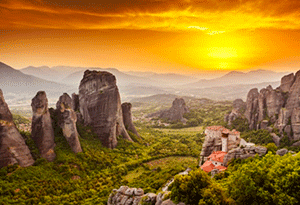
F E B R U A R Y 2 0 1 5
Sometimes as the days pass by — ordinary, uneventful days — we might be visited with the feeling that we’re missing something, that there must be more to life than this. We get out of bed in the morning and go through our routine much the same as we did yesterday and much the same as we will tomorrow, and as day follows day we can feel dulled by a kind of weariness, or a lack of intimacy, or a shallowness of contact with the people and events of our life.
Sufis call this kind of low-level despondency the “fire.” It’s a fire on low-burn to be sure, but add fuel to it — trouble at work, a quarrel with your husband, money problems, a suspicious swelling on your body the doctor says must be biopsied — and the flames lick higher. Add even more fuel — the death of a loved one, you lose your job, your wife leaves you, you receive a terminal diagnosis — and your whole life awakens in fire.
In a famous poem* by Ibn ‘Arabi, “Gentle Now, Doves,” we find these lines:
Pasture between breastbone
and innards.
Marvel!
a garden among the flames!
Breastbone and innards are this embodied life, our embodiment in flames. There’s no way we can put out that fire for good — it’s what embodiment does: burn. Even our satisfactions and momentary pleasures burn up, along with everything else dear to us.
And yet, wonder of wonders! “A grace like new clothes strewn across the garden!” Rumi shouts, “free medicine!” A garden among the flames!
What? What grace? What garden?
Ibn ‘Arabi points between breastbone and innards to an invisible pasture — the heart — that takes up no space (after all, how much space is there between your breastbone and innards?) This “heart pasture,” where is it really? In your chest? In the fire? Is it here? Is it over there?
Sufi literature employs the image of the heart, and “the eye of the heart,” to signify the seat of the indefinable, primordial, spontaneous presence, the place of what is called “the secret” and “the secret of the secret.” Naming it like this aids Sufis in teaching and in writing exquisite poetry, but names only go so far. The names we attribute to notions like “the heart” or “the secret” can’t avoid reinforcing the belief that there is, in this case, a quality over there called “the heart” that I can perceive from over here, thus keeping dominant the dualism of subject-object, self and other.
But in the next line of his poem, Ibn ‘Arabi tells the secret:
My heart can take on any form…
How can this happen? My heart can take on any form to the extent it can relax into its basic openness, its clear spaciousness, the spaciousness that spontaneously appears as everything everywhere. If you look gently into the heart quality of your being, right now, you can sense this spaciousness. In a way of speaking, “my” heart and “your” heart are like windows looking into this infinite heart that holds, and shows up as, the whole cosmos. It is what Tibetan Buddhists call “the Vajra Heart.” We live “inside” this heart, and can never be exiled from it, except in our minds.
That is how, in the heart’s pasture, the seeming division of reality into this over here and that over there, becomes transparent. The flames and the garden are not in opposition. Me and my “ordinary” days, me and my money problems, me and my terminal diagnosis are not in opposition. It’s all happening at once yet it’s not going anywhere — an extraordinary display of light forms of the heart’s spaciousness.
My heart can take on any form:
for gazelles a meadow,
a cloister for monks,
For the idols, sacred ground,
Ka’ba for the circling pilgrim,
the tables of the Torah,
the scrolls of the Quran.
If we look out the window at a stranger walking down the street, or at a squirrel in the tree jumping from branch to branch, or remember an old friend we haven’t seen in years, or imagine a mother in her clay hut in Sudan, gazing down at her nursing infant’s face — if we let the invisible garden of our heart envelope them, be present with them, be the space in which they appear and be the appearance too, our “letting” this be is effortless, unconditional love. This love is effortless because it’s what’s already happening — what we call “love” is the grace, the force, by which everything appears.
Ibn ‘Arabi concludes his poem with this creed:
I profess the religion of love.
Wherever its caravan turns
along the way, that is the belief,
the faith I keep.
The flames of embodiment that hurt — our despondency, anxiety, grief, and loss — don’t stop appearing, but we see through them. We see that there is no other. “Yours,” “mine,” “his,” “hers,” “here,” “there,” are transparent designations, momentary flames, momentary waves in the shoreless heart-ocean, right here between breastbone and innards.
- Translation by Michael Sells.
Night Meditation
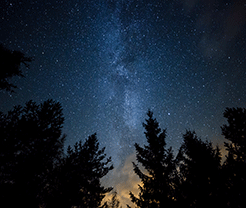
J A N U A R Y 2 0 1 5
“Who is here is what is there.” – Ibn al-Arabi
Now in the quiet of the year the night comes close to earth. Peaceful, impersonal night. It touches your face with its coldness as you make your way through the snowy woods, it touches the tracks of a mouse in the snow, it surrounds the thin moon to the East and the dark branches of the trees. Night. Between the branches, your home galaxy glistens, a great banner of stars.
You stop. You stop making noise crunching through the snow. You stop the small concerns of your thoughts. You join the night in its stillness. You stand there alone, wondering, wondering what’s happening and what you are. Your wondering has no words; it doesn’t presume it knows anything. It doesn’t look for an answer.
An owl swoops through the trees and pulls up, wings wide, stopping on a high branch. You watch its small dark shape, framed by stars. You are alone together.
The owl, the galaxy — you wonder how the galaxy turned itself into all this — into the owl and you and into the trees and the tracery of the mouse’s footprints in the snow. You wonder how the galaxy flung all this out of itself, and how it keeps on turning into everything in this quiet moment as if it were a living being, an aliveness inside everything that doesn’t stop becoming snow and branches and moments. You feel the intimacy of this happening, the galaxy turning now into the warmth of your body and the mist of your breathing.
Your wondering lands like the owl on the very edge of the moment. The woods are quiet. What is inside of you, your privacy, loses its boundary and opens into the trees and the dark air, opens into a presence so familiar you feel it is you without you, the same presence of galaxy and night and owl, a presence of everything in everything.
And then, for an instant, something unbearable shines forth. Unnamable, indescribable — only later do you call it Bliss or say it felt like the Original Bliss of creation, ananda, the ever-present undisclosed radiance of a Happiness so exquisite and kind it bequeaths everything everywhere and resolves everything everywhere, all loneliness, loss, suffering, death resolved without erasure in its infinite wonder.
Suddenly the owl drops from its branch and vanishes in the darkness. Just as suddenly the unbearable epiphany vanishes and you are left, almost invisible, standing in the dark woods in the quiet of the year.